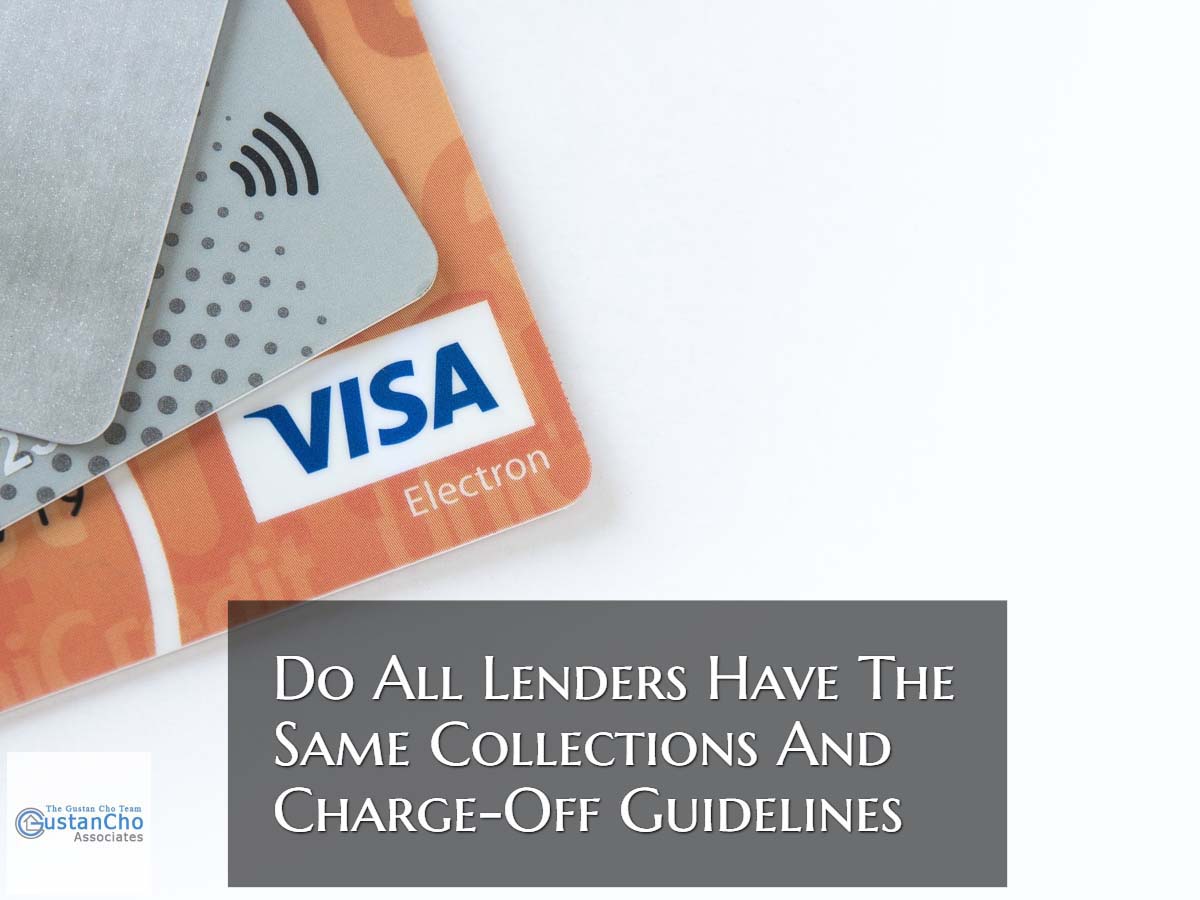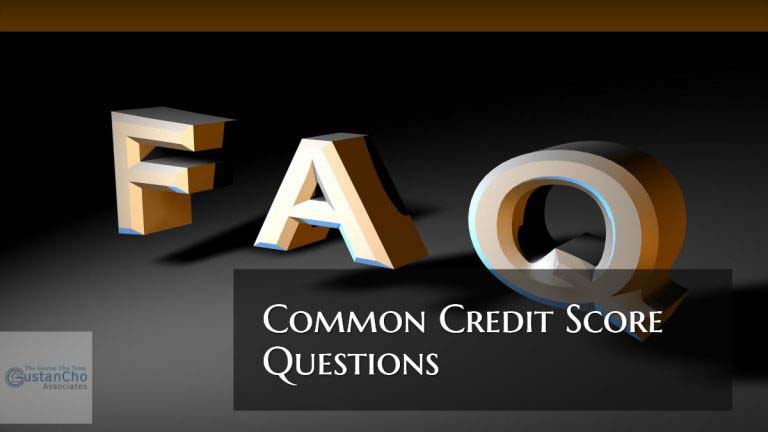This ARTICLE On Do All Lenders Have Same Collections And Charge Off Guidelines Was PUBLISHED On June 21st, 2020
One of the most common questions asked by borrowers is Do All Lenders Have Same Collections And Charge Off Guidelines.
- Over 75% of our borrowers at Gustan Cho Associates are folks who have been turned down by other lenders
- Gustan Cho Associates is one of the very few national lenders with no lender overlays licensed in multiple states
- Many of our borrowers were told they needed to pay their outstanding collections and charged-off accounts in order to qualify for a mortgage
- However, many of our borrowers at Gustan Cho Associates did their own research about whether or not Do All Lenders Have Same Collections And Charge Off Guidelines
- The answer to the question of Do All Lenders Have Same Collections And Charge Off Guidelines is NO
- Not all lenders have the same lending guidelines on collections and charged-off accounts
If you are told that you need to pay off outstanding collections and/or charged-off accounts on a primary residence home loan, seek a different lender like Gustan Cho Associates with no lender overlays.
Do All Lenders Have Same Collections And Charge Off Guidelines: Agency Guidelines Versus Overlays
For those who are told they need to qualify for a mortgage with outstanding collections and charged-off accounts by a particular lender, contact a lender like Gustan Cho Associates with no lender overlays.
- FHA, VA, USDA, Fannie Mae, Freddie Mac do not require outstanding collections and charged-off accounts to be paid in order to qualify for a mortgage
- Fannie Mae and Freddie Mac do not require outstanding collections and charged-off accounts to be paid off on owner-occupant conventional loans
- However, Fannie Mae and Freddie Mac do require a limit on the outstanding collection/charged-off balances you can have on second homes and investment home financing
- However, lenders can have additional mortgage guidelines when it comes to collections and/or charged-off accounts that are above and beyond the minimum agency guidelines
- The higher lending standards by the individual lenders that is above and beyond the minimum agency guidelines are called lender overlays
In this article, we will discuss the answers to Do All Lenders Have Same Collections And Charge Off Guidelines.
Difference Between Collection Versus Charged-Off Accounts
Collection and Charged-Off Accounts do not have to be paid to qualify for owner-occupant home loans.
- FHA, VA, USDA, Fannie Mae, and Freddie Mac does not require outstanding collections and/or charged-off accounts to be paid off
- However, some lenders will require borrowers to pay outstanding collections and/or charged-off accounts to be paid off as part of their lender overlays
- In the next paragraph, we will explain what lender overlays are in more detail
- In this paragraph, we will explain the difference between collections versus charged-off accounts
If a consumer goes through a difficult time such as job loss, business loss, divorce, medical issues, and/or other extenuating circumstances, there is normally a disruption in income.
How Credit Tradelines Go To Collections And Charged-Off Status
With the disruption in income comes late payments on their monthly debt:
- Certain debts like credit cards, auto loans, and other financial obligations can get behind
- Often times, consumers resolve their financial problems and get back to work
- However, it is no secret that it is next to impossible to catch up with debts that are behind
- Many times consumers will decide their credit card debts into collections
- If you do not pay your credit card minimum payments, the debt goes into collections
- After a period of time, such as a minimum of 120 days, the collection account can go into charged-off status
- A charged-off account is when a creditor charges off the debt off their books
- However, a charged-off account does not mean the consumer is off the hook
- Most collection accounts will get charged off
- However, a charged-off account can be sold to third party collection agencies
- The creditor who buys a charged-off account can pursue the debtor and try to get a judgment
The good news is mortgage borrowers can qualify for a mortgage with outstanding collection accounts and charged-off accounts without paying them off.
Do All Lenders Have Same Collections And Charge Off Guidelines: Understanding Agency Guidelines Versus Overlays
The bottom line is mortgage borrowers do not have to pay outstanding collections and/or charged-off accounts to qualify for a mortgage.
- Lenders that require collections and charged-off accounts get paid off have lender overlays
- If you are told that you need to pay outstanding collections and/or charged-off accounts, then go to a different lender like Gustan Cho Associates that have no lender overlays
- Again, lenders can have higher lending requirements than the minimum agency mortgage guidelines called overlays
Gustan Cho Associates has no lender overlays on government and conventional loans.
How Do Mortgage Underwriters View Collection Accounts
There are two different types of collection accounts.
- Medical collections and Non-Medical Collections
- If a borrower has a non-medical collection account that is greater than $2,000, the mortgage underwriter will take 5% of the outstanding collection account balance and use that figure as a monthly hypothetical debt
- The borrower does not have to pay a penny
- However, when mortgage underwriters calculate the borrower’s debt to income ratio, the hypothetical 5% of the outstanding collection balance is used like it is real monthly debt
- This often poses a problem if the outstanding balance is a large number
- If the borrower sets up a written payment plan on a large collection account, then either 5% and/or the written payment agreement with being used as the monthly debt
- For example, if a borrower has $20,000 in outstanding collections, the hypothetical monthly debt used will be $1,000 which is 5% of the $20,000
- However, if the borrower sets us a $100.00 monthly written payment agreement with the creditor, then the $100 will be used as the monthly debt instead of $1,000
With medical collections and charged-off accounts, the 5% hypothetical debt is exempt. This holds true no matter how large the outstanding balance is. To qualify for a mortgage with outstanding collections and/or charged-off accounts, please contact us at Gustan Cho Associates at 800-900-8569 or text us for a faster response. Or email us at gcho@gustancho.com.









